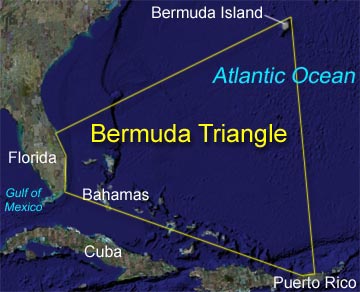Hello, everyone. Welcome to my Rhetoric and Civic Life Passion Blog, Beyond Science. Last year, I was rambling about the game of golf every week (any golfer here?). For this spring semester, I have decided to switch my topic. Now, what you are about to witness is the most fascinating and strangest things scientists have yet to tackle—the unsolved mysteries of the world. As you may suspect, I am a science/technology/mathematics geek, so this new topic fits my interest perfectly. (By the way, the title “Beyond Science” is inspired by a YouTube channel that I watch almost every day. Created by Mike Chen, it is a great channel that everyone need to check out). Without further ado, let’s get started!
Theme 1: Celestial Beings
My first love was the night sky. When I was a kid, I would always stare at those glistering, distant stars, and would imagine myself as a heroic astronaut, who performs marvelous feats of interstellar travels. As I grew up, my fantasy towards the sky did not fade away. Rather, I found myself infatuated with the universe. Are aliens real? Will we find Martians or other extraterrestrial life forms in the future? Can we travel through worm holes to get to other galaxies? What lies outside the boundary of the observable universe? What happened before the big bang? What is the destiny of the universe? Since ancient time, great writers, philosophers, and scientists have puzzled over the sky above our head. The effort to solve the mysteries surround the firmament is the universal human endeavor. I will further explore this topic in my upcoming posts.

Credit: Wallpaperup.com
Theme 2: Natural Wonders
Famous American oceanographer, Paul Snelgrove, once remarked, “We know more about the surface of the Moon and about Mars than we do about [the deep sea floor], despite the fact that we have yet to extract a gram of food, a breath of oxygen or a drop of water from those bodies.” Indeed, Mother Nature is a kaleidoscope filled with surprising shapes and colors. Even on earth, there are still a lot of interesting phenomena we have not yet been able to explain. Probably the most well-documented (and infamous, I may add) example of natural wonders is the Bermuda Triangle, where numerous aircraft and ships mysteriously disappeared under unusual circumstances. Some survivors even reported the occurrence of supernatural phenomenon. Besides Bermuda Triangle, this blog will explore many other interesting wonders that you have probably never heard of!

Bermuda Triangle is a loosely defined region in the western part of North Atlantic Ocean. Credit: Unmuseum.org
Theme 3: Ancient Stories
In April 1900, under 148 feet of water near the Greek island of Antikythera, a group of sponge divers accidentally discovered copious artifacts, one of which included a fragment of probably one of the most peculiar objects in the history of archaeology—an ancient computer. Later known as the Antikythera Mechanism, this computer was designed to predict astronomical positions and time. 82 separate fragments of its remains were found later, some of which contained gears and significant inscriptions. We learned from our history textbooks that the first mechanical computer was invented in 1822 by Charles Babbage, but how could ancient Greek possibly build a computer? It is a question that perplexes scientists for years.

Front fragment of the Antikythera Mechanism. Credit: Wikipedia
The Antikythera Mechanism epitomizes the stories of discovery of ancient technology that far surpassed what we were capable of. Although many of them are dismissed by scientific communities as mere fictions, or hyperbolic writing of the authors at the time, there are a number of evidence suggesting that ancient civilizations might once possess technologies that we cannot even achieve today. If I were to invent a time traveling machine, my first task would be to check out whether they were real or not.
Theme 4: Human Bodies
Surprisingly, there are many unsolved questions about ourselves, some of which may seem obviously easy to answer at our first glance. For instance, why do we laugh? Why do we dream? Why do we yawn? Similarly, there are those that have puzzled scientists over the course of years. For example, how is “mind over body” effect possible? How does déjà vu occur? What is the exact mechanism behind anesthesia? Can human beings possess superpower? Much research has been done on these subjects, yet scientists have failed to provide a clear and definitive answer. No wonder Korean writer Sun Myung Moon once described human body as “the royal palace of mystery.”
What comes next?
In the upcoming weeks, I will present some of the most intriguing enigmas from each category mentioned above. It is going to an exciting learning journey for both you and me, so stay tuned! I look forward to reading your Passion Blogs, too!
Works Cited
Snelgrove’s quote: http://www.seasky.org/quotes/sea-quotes-ocean-exploration.html
Bermuda Triangle: https://www.youtube.com/channel/UCxo8ooAqXiObjuaIy10ud0A
Antikythera Mechanism: https://en.wikipedia.org/wiki/Antikythera_mechanism#Discovery
Moon’s quote: http://www.tparents.org/Moon-Books/wfs/WFS-2-3.HTM